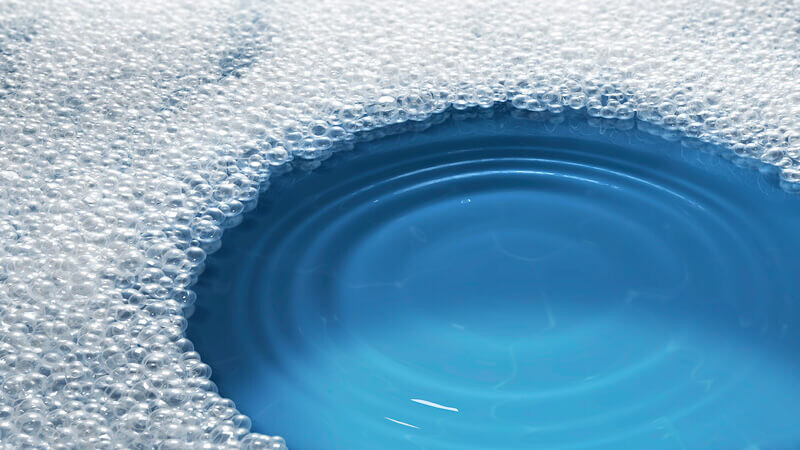How Defoamers Can Save Time and Money in Industrial Production
How Defoamers Can Save Time and Money in Industrial Production
Blog Article
The Duty of Defoamers in Enhancing Product Quality and Efficiency
Defoamers serve as crucial additives that alleviate this concern, making certain smoother production process while improving the aesthetic and useful attributes of the final items. The selection of the appropriate defoamer can be important to accomplishing optimal outcomes, elevating crucial questions regarding formula compatibility and performance metrics that merit more exploration.
Comprehending Defoamers
Recognizing the role of defoamers is vital for keeping product top quality throughout different sectors. Defoamers are chemical additives created to protect against the formation and reduce of foam in liquid systems, which can detrimentally affect procedures such as blending, loading, and surface area stress. Foaming can bring about inadequacies, item defects, and jeopardized visual charm, making defoamers a crucial element in producing procedures.
In commercial applications, defoamers assist to boost item uniformity and stability. The reliable usage of defoamers not just makes certain smoother production processes yet likewise adds to premium item efficiency.
Additionally, the option and formulation of a defoamer should line up with particular application needs, such as compatibility with other active ingredients, efficiency under varying temperature and pH problems, and potential regulatory restraints. Inevitably, comprehending defoamers' features and their value in different solutions is essential for enhancing production and ensuring the finest quality final result.
Kinds Of Defoamers
Defoamers can be classified into several types based on their structure and mechanism of action. The primary kinds include silicone-based, non-silicone natural, and not natural defoamers.
Silicone-based defoamers are amongst one of the most efficient, mostly as a result of their capacity to spread out quickly on the fluid surface and interrupt foam development. Their one-of-a-kind chemical framework enables remarkable stability, making them appropriate for high-temperature applications and atmospheres with differing pH degrees.
Non-silicone organic defoamers, often composed of natural oils or fats, are valued for their biodegradability and reduced poisoning. These are generally made use of in food and beverage applications where safety and environmental impact are extremely important.
Not natural defoamers, which include compounds like talc or calcium carbonate, act by enhancing the density of the fluid, therefore minimizing foam security. They are usually made use of in industrial processes where compatibility with other materials is not a concern.
Each sort of defoamer has unique advantages and restrictions, permitting customized options depending upon the particular foaming problems encountered in different applications. Recognizing these differences is vital for enhancing performance and attaining desired product quality.
Applications Throughout Industries
Many sectors leverage defoamers to enhance item quality and operational effectiveness. In the food and beverage market, defoamers are essential in procedures such as developing and dairy products production to stop foam formation, which can cause inadequacies and product disparity. By regulating foam, producers can make sure much better yield and an extra consistent item.
In the pharmaceutical sector, defoamers play an essential role in the solution of fluid medicines, where too much foam can hinder mixing and precise dosing. Their use assists maintain the stability of the solutions and promotes smoother manufacturing processes.
The paint and coatings industry likewise depends on defoamers to improve the efficiency of items throughout application. By reducing foam, these additives ensure a smoother coating and boost the aesthetic qualities of the final item.

Benefits of Utilizing Defoamers
While the application of defoamers varies across sectors, this contact form their benefits continually boost item high quality and procedure efficiency. One substantial benefit is the reduction of foam development throughout producing procedures, which can or else cause manufacturing hold-ups and disparities in product top quality. By minimizing foam, defoamers allow a smoother circulation of materials, promoting extra efficient procedures and minimizing the likelihood of devices breakdowns.
Additionally, using defoamers can boost the look and structure of end products. In sectors such as finishings, paints, and food handling, extreme foam can jeopardize the aesthetic looks and overall top quality, while the suitable defoamer application makes certain a consistent coating and desirable attributes. Defoamers can contribute to cost savings by decreasing waste during manufacturing and maximizing the usage of raw materials.

Selecting the Right Defoamer
Picking the right defoamer is vital for enhancing manufacturing procedures and guaranteeing product top quality. The option of defoamer affects not just the efficiency of foam control yet also the overall efficiency attributes of the final item. Elements to take into consideration consist of the type of application, the chemistry of the solution, and the ecological conditions under which the item will certainly be used.
Different industries might need particular defoamer types, such as silicone-based, natural, or polymeric defoamers. Comprehending the compatibility of the defoamer with the main ingredients is necessary to stay clear this page of unfavorable reactions that can jeopardize item integrity. In addition, the defoamer's efficiency in various temperature levels and pH degrees have to be examined to guarantee consistent performance.
Checking the defoamer in small applications can give valuable insights into its performance and suitability. Consideration of regulative conformity, especially in food, drugs, and cosmetics, is vital in picking a defoamer. Eventually, a detailed analysis of these factors will certainly lead to the choice of a defoamer that not just controls foam properly but additionally improves the top quality and performance of the end product.
Verdict

Finally, defoamers are vital ingredients that substantially pop over to this site improve product high quality and efficiency throughout various sectors. By efficiently decreasing foam development, these agents not only enhance functional performance however additionally add to the practical and visual stability of products. The critical option and application of defoamers cause cost financial savings, enhanced source usage, and raised consumer satisfaction. Overall, the importance of defoamers in commercial processes can not be overstated, as they play a crucial function in accomplishing premium and constant end results.
Frothing can lead to inadequacies, product problems, and compromised visual charm, making defoamers a vital component in producing operations.

Report this page